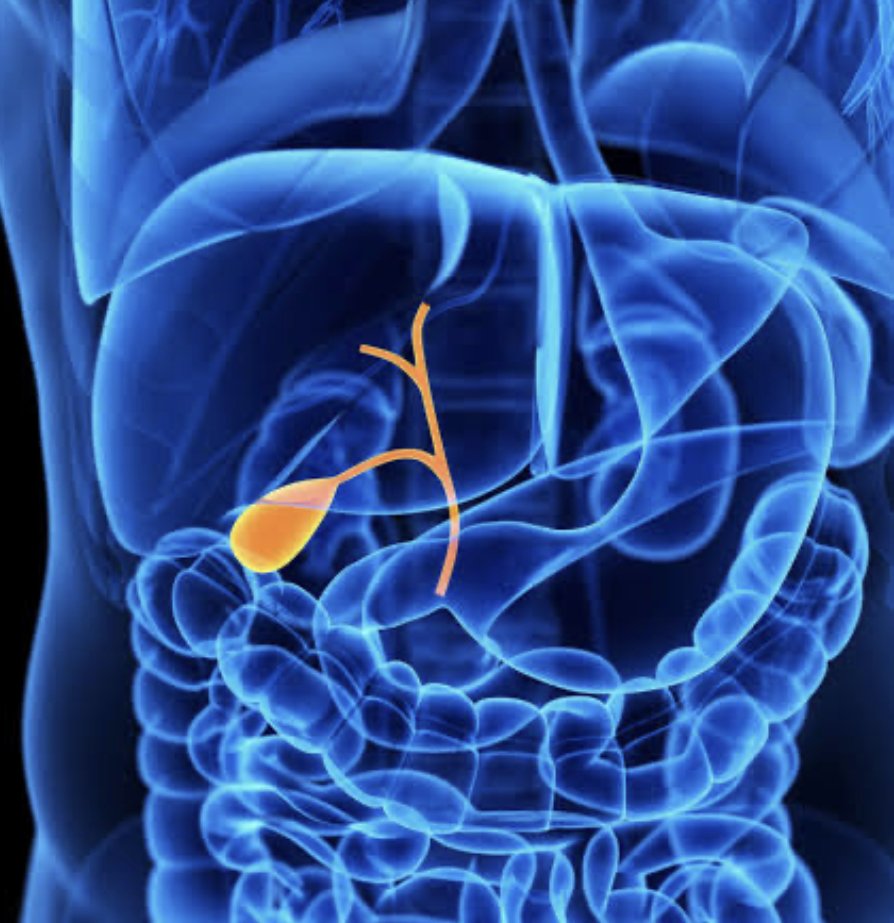
Reading Time: 2 minutes
Complications of Untreated Gallbladder Stones: Risks You Shouldn’t Ignore.
Complications of untreated gallbladder stonescan be more than just a nagging discomfort.
They pose significant risks to your health and well-being.
Understanding Gallbladder Stones
Gallbladder stones, also known as gallstones, are solid particles that form in the gallbladder, a small organ beneath the liver.
These stones can vary in size and composition and are primarily made of cholesterol or bilirubin.
10 Complications of Untreated Gallbladder Stones
Untreated gallbladder stones can lead to various complications, some of which can be severe and life-threatening. Here are 10 potential complications of untreated gallbladder stones:
Acute Cholecystitis:
Gallstones can block the cystic duct, causing inflammation of the gallbladder.
This condition, known as acute cholecystitis, is characterized by severe abdominal pain, fever, and potentially dangerous infections.
Gallbladder Perforation:
If acute cholecystitis is left untreated, it can lead to the rupture or perforation of the gallbladder.
This is a medical emergency that requires immediate surgery.
Empyema:
Untreated gallbladder infections can result in the accumulation of pus in the gallbladder, a condition called empyema.
It necessitates antibiotics and drainage, preferably surgery to remove the source of infection, that is the gallbladder in such condition.
Common Bile Duct Stones:
Gallstones can migrate from the gallbladder and become lodged in the common bile duct.
This can lead to jaundice, pancreatitis, and severe pain.
Cholangitis:
Obstructed bile ducts due to gallstones can cause cholangitis, a condition characterized by bile duct infection, fever, and abdominal pain.
Gallstone Ileus:
This rare but serious condition occurs when a large gallstone enters the small intestine after eroding gallbladder and adjacent small bowel ( duodenum) and moves down till lower part of small intestine and causes a bowel obstruction.
Gangrene of the Gallbladder:
Prolonged inflammation and blockage of the cystic duct can result in gangrene of the gallbladder, which is a life-threatening condition.
Acute Pancreatitis:
Gallstones blocking the pancreatic duct can trigger pancreatitis, leading to severe abdominal pain, digestive problems, and potentially organ damage.
Biliary Fistula:
In some cases, untreated gallbladder inflammation can result in the formation of an abnormal connection between the gallbladder and other organs, known as a biliary fistula.
Increased Risk of Gallbladder Cancer:
While rare, long-standing gallstones can elevate the risk of developing gallbladder cancer.
Given the potential severity of these complications, it’s crucial to seek medical attention if you experience symptoms of gallbladder stones, such as abdominal pain, nausea, vomiting, or fever.
Early diagnosis and appropriate treatment can help prevent these complications and ensure your overall health and well-being.
